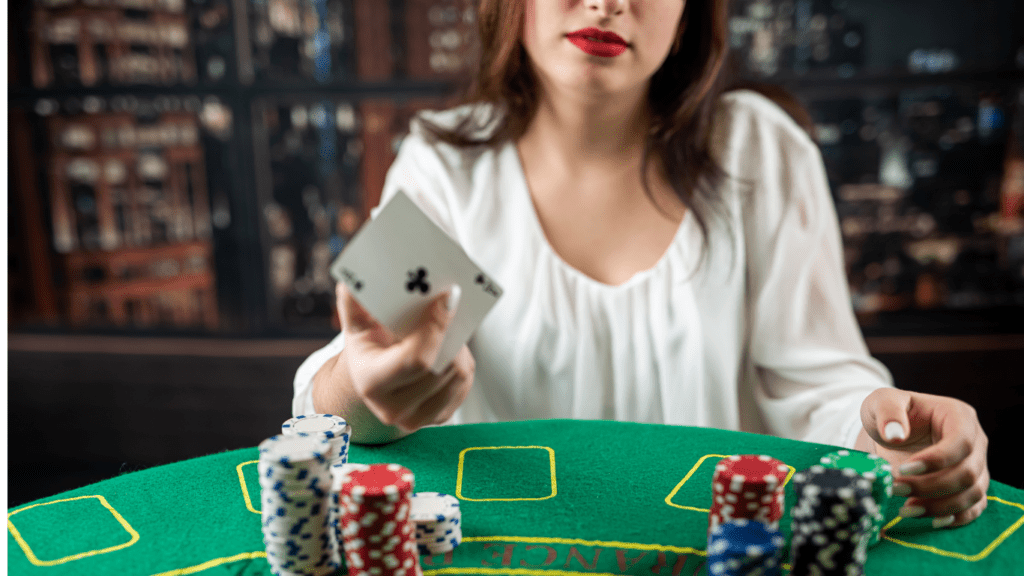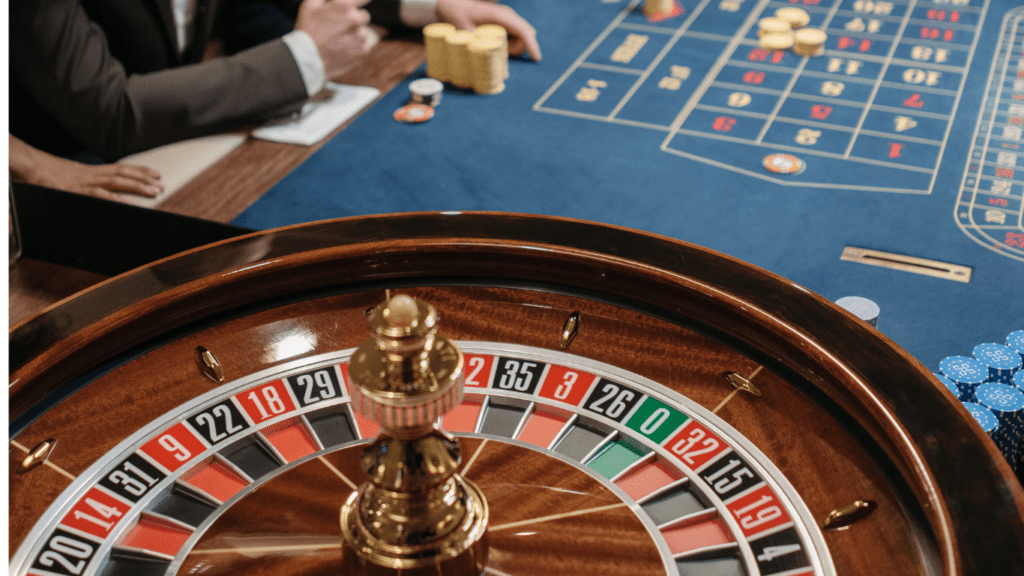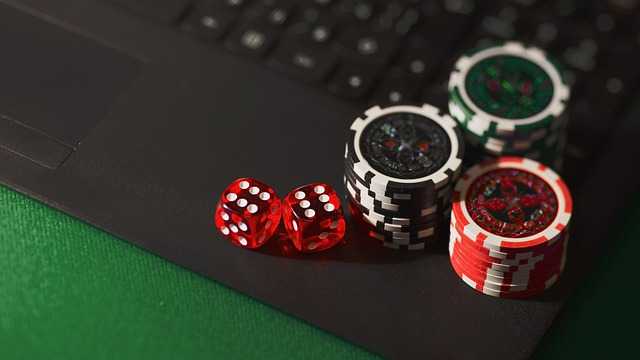Understanding the Basics of Gambling
The Concept of Luck in Gambling
Luck plays a significant role in many forms of gambling. Random outcomes are inherent to games like slot machines, roulette, and lottery.
These games operate based on algorithms or physical randomness, making each outcome unpredictable.
For example, a slot machine’s spin or a roulette wheel’s landing spot depends purely on chance. According to the American Gaming Association, nearly 80% of casino games rely primarily on luck.
Luck introduces an element of excitement but also unpredictability, influencing a gambler’s experience.
The Role of Skill in Various Games
Skill can greatly impact the outcome in certain gambling games.
- Poker
- Blackjack
- Sports betting
are prime examples where strategy, knowledge, and experience matter.
In poker, a player’s ability to read opponents and manage bankrolls can turn the tide in their favor.
Blackjack requires understanding odds and card counting techniques to increase winning chances.
Similarly, successful sports bettors analyze statistics, player form, and other variables to make informed wagers.
According to the National Gambling Impact Study Commission, around 60% of poker outcomes involve skillful decision-making. Skill offers an opportunity for consistent success, reducing reliance on luck.
Examining Popular Gambling Games
Games Dominated by Luck
In games dominated by luck, players find their outcomes primarily determined by chance rather than strategy or skill.
- Slot machines serve as a prime example. Each spin results from a random number generator (RNG), making it impossible to predict or influence the result.
- Lotteries operate similarly, where winning numbers are drawn randomly, leaving participants’ fates to chance.
- Roulette also exemplifies luck-driven games. The ball’s landing spot on the wheel can’t be forecasted, making each spin an independent event with unpredictable results.
These games emphasize the thrill of unpredictability and the excitement that luck can bring.
Gamblers engaging in these activities depend largely on fortune, knowing skill has little to no impact on their success.
Games Where Skill Matters
Some gambling games, however, offer a different dynamic where skill significantly impacts results.
Poker is a classic example.
To influence the game’s outcome and managing their hands and betting strategies to maximize potential wins, players use their:
- knowledge,
- strategy,
- psychological insight
Blackjack rewards players who understand probability and employ sophisticated strategies like card counting.
By making educated decisions based on known and visible cards, skilled players can shift the odds slightly in their favor.
Sports betting also falls into this category.
Bettors who research teams, study statistics, and understand the nuances of the sport can make more informed wagers.
This ability to analyze and predict outcomes makes skill an integral part of their success.
These games provide opportunities for skilled individuals to increase their chances of winning, marrying knowledge and strategy with the element of risk inherent in gambling.
Psychological Aspects of Gambling

The Gambler’s Fallacy
The Gambler’s Fallacy refers to the mistaken belief that past random events affect future ones. In gambling, this often manifests when players believe a series of losses increases the likelihood of a win.
Casinos benefit from this bias because players keep betting, misled by the assumption that a win is imminent after many losses.
For example, if someone flips a coin five times and it lands on heads each time, they might incorrectly believe tails are overdue on the next flip.
This fallacy ignores the independent nature of each event.
Cognitive Biases in Gambling
Gambling decisions are heavily influenced by cognitive biases. One common bias is the Illusion of Control, where players overestimate their influence on game outcomes.
For example, in dice games, people might roll the dice gently for low numbers and hard for high numbers, believing their actions can alter random results.
Another bias is the Near-Miss Effect, where near wins encourage continued play, as players feel they’re close to winning.
Studies show this effect activates brain areas associated with rewards, reinforcing gambling behavior despite losses.
Statistical Versus Intuitive Approaches
1. Probability and Odds
Understanding probability and odds is essential for gamblers relying on skill. Probability is the measure of the likelihood an event will occur, expressed as a number between 0 and 1.
For instance, the probability of rolling a three on a fair six-sided die is 1/6 or approximately 16.67%. Odds, on the other hand, represent the ratio between the number of successful outcomes to the number of unsuccessful ones.
If a horse has a 1 in 5 chance of winning a race, the odds are 1:4. Professional gamblers use probability to make informed betting decisions.
They calculate expected values by multiplying the potential winnings by their probabilities and subtracting the expected cost.
This aligns with the Kelly Criterion, a formula used to determine optimal bet sizing.
By analyzing historical data, skilled gamblers predict outcomes more accurately than those relying solely on intuition.
2. Intuition and Experience
While statistical methods provide a solid foundation, intuition and experience play crucial roles in gambling.
Intuition is an unconscious understanding developed from repeated exposure. Experienced gamblers recognize patterns and cues that are not immediately obvious.
For example, seasoned poker players intuitively detect opponents’ tells or bluffs, which statistical models cannot easily quantify.
Experience helps individuals better assess risks and rewards.
Skilled gamblers learn from past mistakes and successes, refining their strategies over time.
Intuition complements statistical analysis, as it allows gamblers to make quick decisions in dynamic situations.
Combining both approaches creates a balanced strategy, leveraging the strengths of each method.
Ethical and Social Implications
Gambling and Society
Gambling impacts society in multiple dimensions, affecting economic, social, and psychological aspects of communities. It provides significant economic benefits through job creation and tax revenue.
However, it also poses social challenges, particularly in terms of gambling addiction.
According to the National Council on Problem Gambling, around 2 million US adults meet the criteria for severe gambling problems annually.
This form of addiction can lead to financial ruin, broken relationships, and mental health issues.
Public perception of gambling varies widely.
Some view it as a harmless form of entertainment, while others see it as a vice that disproportionately affects vulnerable populations.
Communities with high rates of problem gambling often face increased incidences of crime, poverty, and strained social services.
The Responsibility of Casinos
- Casinos hold a significant responsibility in promoting ethical gambling practices.
- They must implement measures to prevent gambling addiction.
- These measures include self-exclusion programs where players can restrict their own access to gambling facilities voluntarily.
- Additionally, employee training programs help casino staff recognize signs of problematic gambling behavior among patrons.
- Moreover, transparency in the odds of games is crucial.
- Casinos should ensure players understand the risks of gambling.
- Advertising should not target vulnerable groups like minors or those with known gambling issues.
- Adhering to these ethical standards helps balance the line between maintaining profitable business operations and fostering a responsible gambling environment.


 Alice McClurg - Content Director Alice McClurg leads the editorial team as Content Director at Jackpot Journey Spot. With a keen eye for emerging trends and a deep understanding of the gambling landscape, Alice curates in-depth articles, event highlights, and game overviews. Her expertise helps guide readers through the ever-evolving world of gambling, ensuring they stay informed and entertained.
Alice McClurg - Content Director Alice McClurg leads the editorial team as Content Director at Jackpot Journey Spot. With a keen eye for emerging trends and a deep understanding of the gambling landscape, Alice curates in-depth articles, event highlights, and game overviews. Her expertise helps guide readers through the ever-evolving world of gambling, ensuring they stay informed and entertained.
